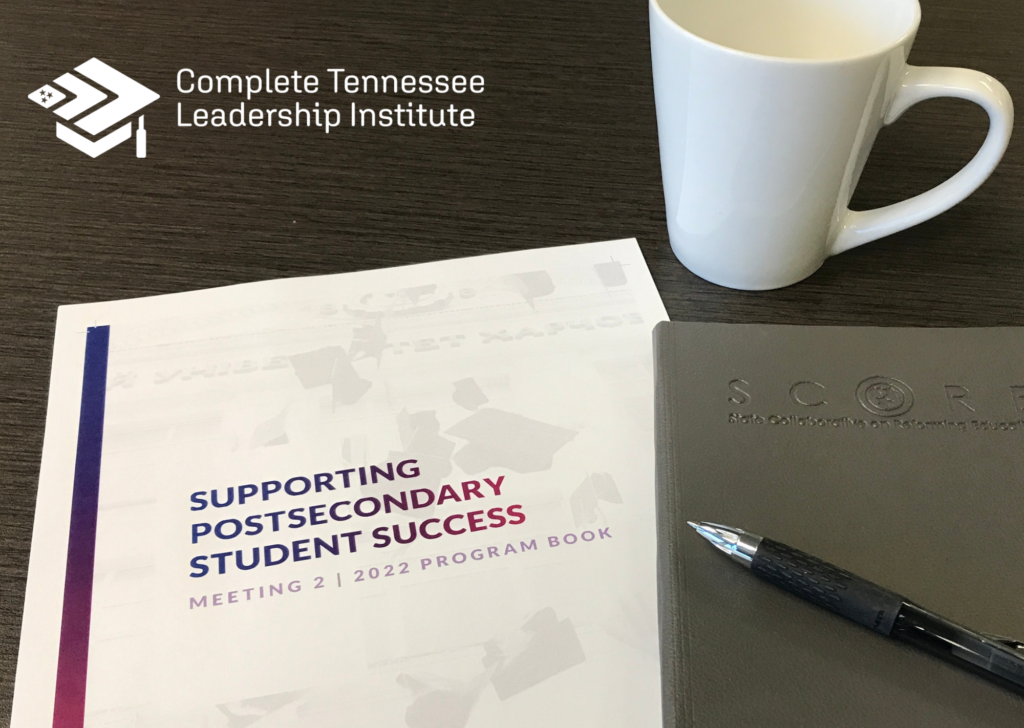
Currently, more than half of jobs in Tennessee require education beyond high school, but only 46 percent of Tennesseans hold a postsecondary degree or credential. And despite the growing need for a more educated workforce, only half of Tennesseans who start a postsecondary pathway will complete one.
The Complete Tennessee Leadership Institute (CTLI) is focused on turning those statistics in a positive direction. SCORE and The Hunt Institute regularly convene higher education leaders and experts through CTLI to find ways to support students’ postsecondary success.
Earlier this year, the CTLI cohort gathered in Memphis with ElevateNC, a North Carolina-based program with a similar mission. CTLI member Michelle McKissack, chair of Memphis-Shelby County Schools Board of Education, and Dr. David English, vice president of academic affairs in the University of North Carolina system, shared their thoughts on issues raised during the joint convening.
The Transition From High School To Higher Education
Members discussed the role of advising as key to ensuring that students successfully transition to higher education. Summer melt, the phenomenon where college-intending students never make this transition, affects more than 40 percent of Tennessee Promise applicants.
From writing college essays to completing the Free Application for Federal Student Aid (FAFSA), enrolling in college can be a daunting task, even more so for first-generation students — who made up 58 percent of those lost to summer melt. While organizations like tnAchieves and The Ayers Foundation provide mentorship networks to support students through this process, McKissack says these conversations need to start earlier.
“We should be providing postsecondary pathways and having students think about it at the middle school level,” McKissack says. “You can’t wait until senior year — you’re already starting late.”
Another way to prepare students for the transition to higher education is through early postsecondary opportunities. McKissack highlighted Tennessee’s AP Access for All and is hopeful about expanding postsecondary access for students in Memphis-Shelby County Schools.
“We must educate students and families early and often about the amazing opportunities and resources out there,” McKissack says.
Supporting Transfer Students
Tennessee Promise and Tennessee Reconnect allow students to attend community college without paying tuition, but ensuring the transfer of credits to continue their education is a key piece of the completion puzzle. The cohort discussed Tennessee Transfer Pathways (TTPs), which guarantee the transfer of 60 credit hours to a four-year institution. Despite these pathways, less than half of the 13,000 Tennessee transfer students in 2019 utilized a TTP.
With 58 community colleges in North Carolina and 16 public institutions in the University of North Carolina system, Dr. English says the transfer issue has gotten significant attention there over the last 25 years. He highlighted articulation agreements, a common course catalog, and reverse transfer as important policies to ensure a smooth transfer for students in North Carolina.
“You need to think about how to navigate transitions between systems and organizations,” English says. “And there is no silver bullet.”
Bridging Silos In Education
McKissack and English agree that collaboration is essential to creating policies that lead to postsecondary success for students.
“The most enriching aspect of this combined convening was hearing individuals share about the same problems we’re dealing with in North Carolina, but with a different context,” English said. “The default approaches to problems are different, and it creates sparks for me.”
For McKissack, the convening highlighted the benefit of coordinated conversations between K-12 and higher education, like those happening in North Carolina.
“We need a little bit more of that in Tennessee,” she said. “If you can get people who are talking in the trenches, having the same conversations about students at the same time, that is significant.”
CTLI’s mission to increase college completion is ongoing. The cohort will convene again later this month in Greenville, Tennessee, to continue seeking solutions that support more students in completing degrees.
Sonny Metoki is a graduate fellow at SCORE. SCORE Communications Manager Diane Hughes contributed to this post.
Read more about CTLI:
